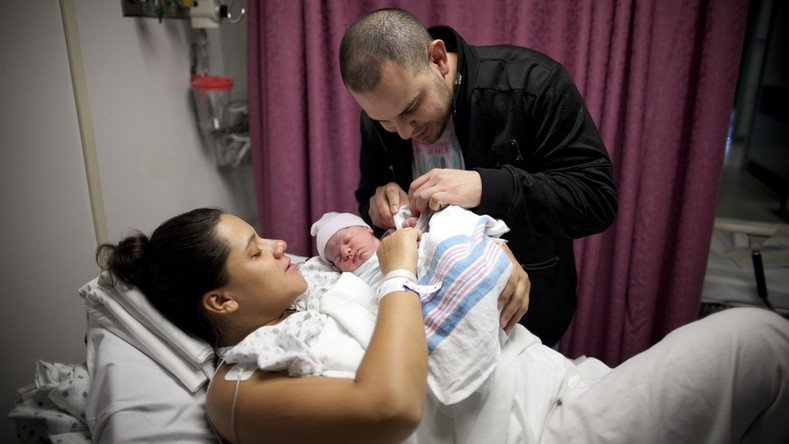DC introduces bill to require 16 weeks of paid family leave for employees

Councilmembers in Washington, DC introduced bill on Tuesday to provide all residents in the city with what would be the most generous family leave in the country. The US is one of only three countries that doesn’t have paid maternity leave.
If the Universal Paid Leave Act of 2015 gets passed, all workers in the nation’s capital, regardless of whether they are full- or part-time, will be eligible for 16 weeks of paid leave to spend time with a new child, to recuperate from a military deployment, for personal illness or to help care for a sick family member.
It will be funded by the government of the District of Columbia, and so there is an associated new tax that is packaged within the bill. Employers will pay the city between 0.6 and 1 percent of their employees’ salaries, on a sliding scale based on how much employees earn.
US, Papua New Guinea, Oman are only nations without paid maternity leave - UN http://t.co/vNSk21zMxupic.twitter.com/089jgMQuv1
— RT America (@RT_America) May 14, 2014The DC government doesn’t have the authority to tax the district’s largest employer – the federal government – and thus compel it to participate, but employees can opt in with a contribution of their salary.
The benefits of employees taking time off will also be on a sliding scale. Those who make up to $52,000 a year will receive the equivalent of their salary from the government. Above that threshold, those on paid leave will take in $1,000 a week plus half their salary in excess of $52,000, up to a maximum of $3,000 per week.
Such a measure is in line with President Barack Obama’s initiatives for extended workers benefits, and was enthusiastically supported by him, according to the Washington Post.
“The Obama administration has realized the action is on the state and local level, and they gave us the money to model how this could actually work,” said Councilmember Elissa Silverman (I-At Large), one of the supporters of the measure, according to the Washington Post. “We now have a national platform and a great opportunity with this legislation to show how it can be done.”
READ MORE: ‘Big jar of condoms’: Aussie radio chief deters staff from taking maternity leave
Support for such initiatives has come from both sides of the aisle in the 2016 race. While few would be surprised by Democratic candidate Bernie Sanders proposing an extension of benefits, Republican presidential hopeful and Florida Senator Marco Rubio announced a proposal of his own last month.
This proposed benefit would dwarf any other in the country. Right now, the most generous of such measures are in California and New Jersey, where partial paid leave is offered for six weeks.
Dozens of other states have proposed legislation that would give paid family leave to all workers. At the local level, Chicago, Illinois has also proposed a bill, while San Francisco, California has had such a law on the books since 2006.












